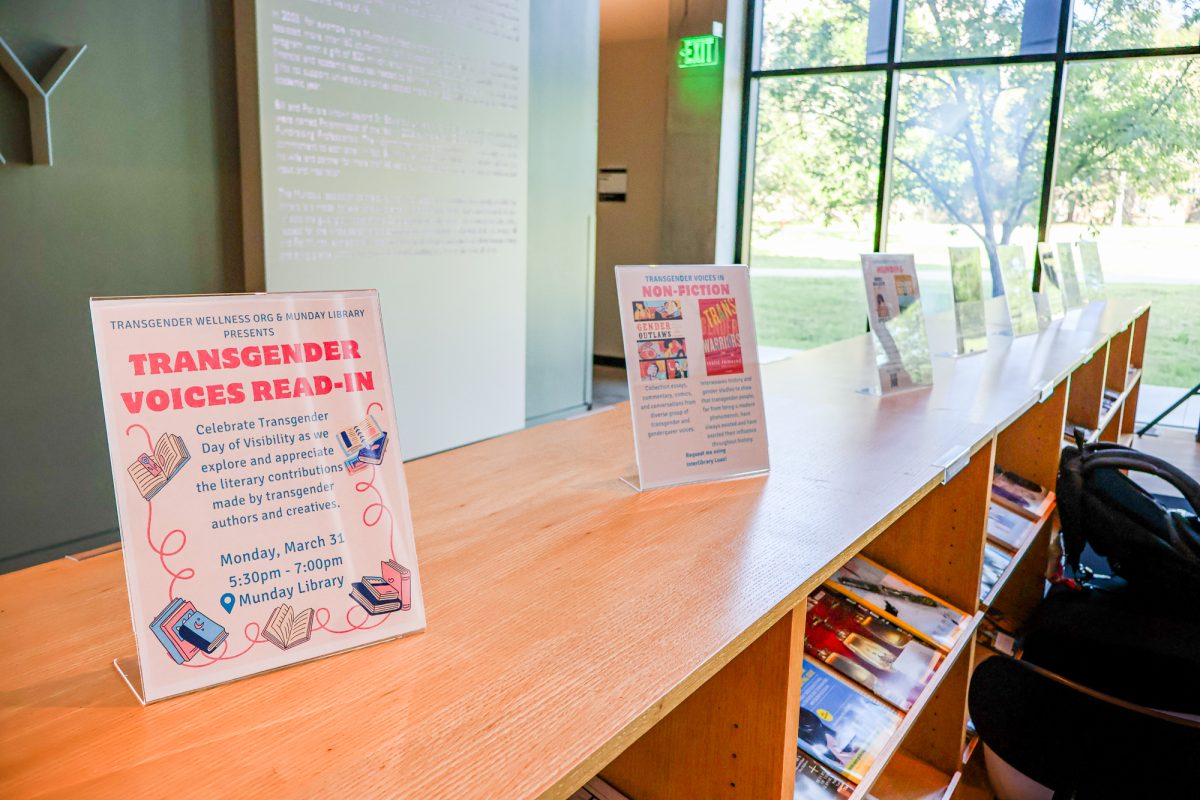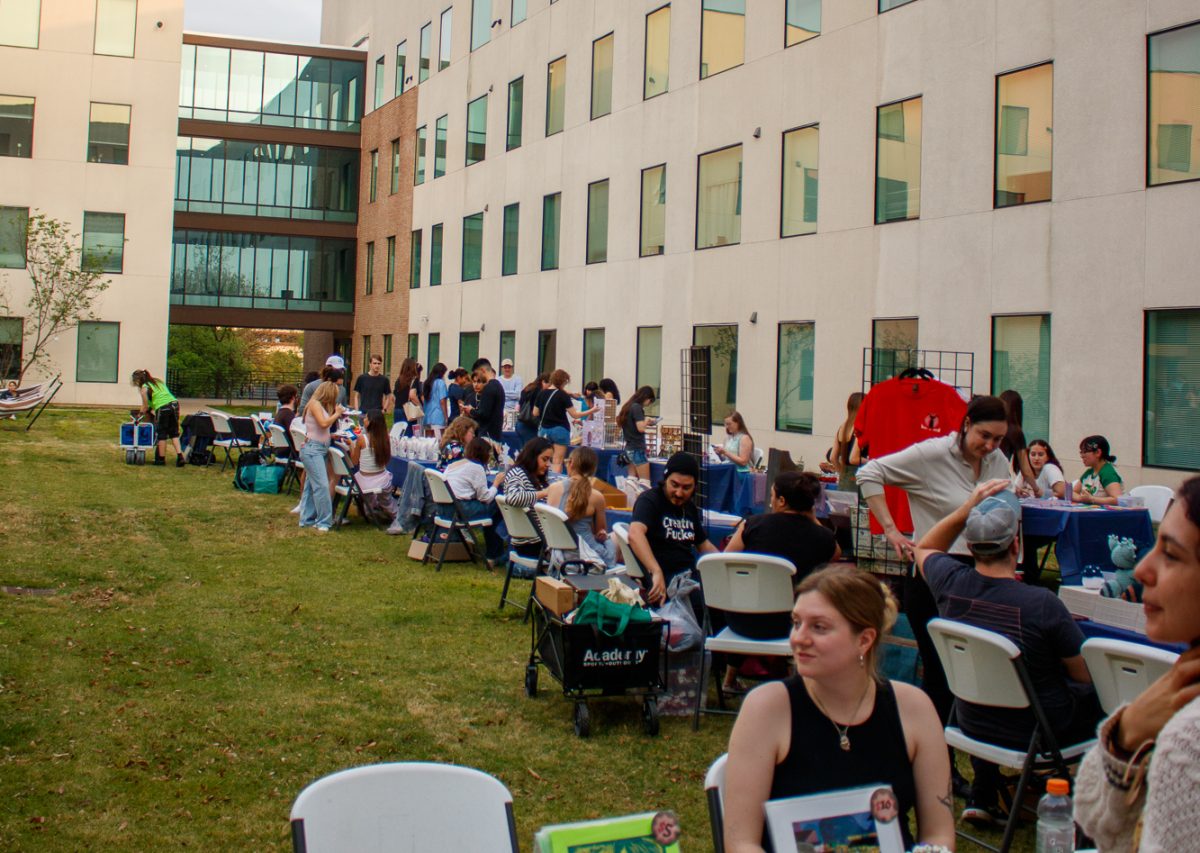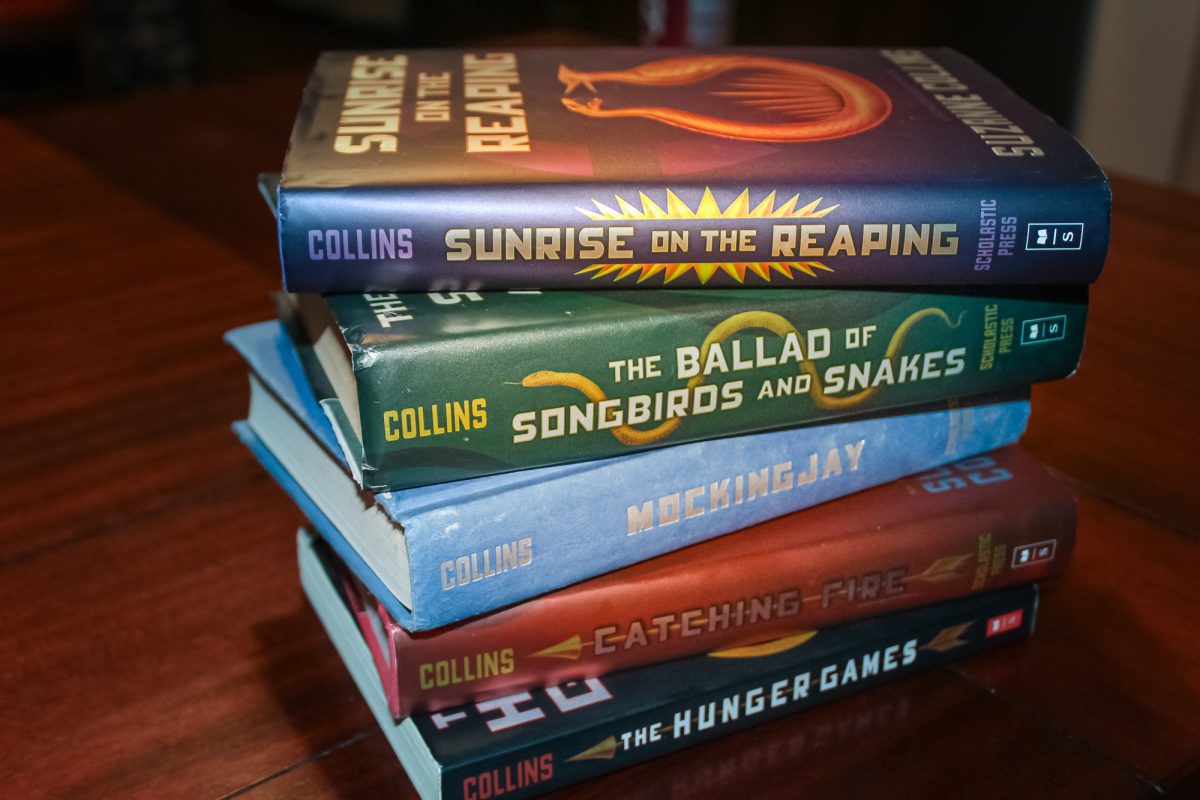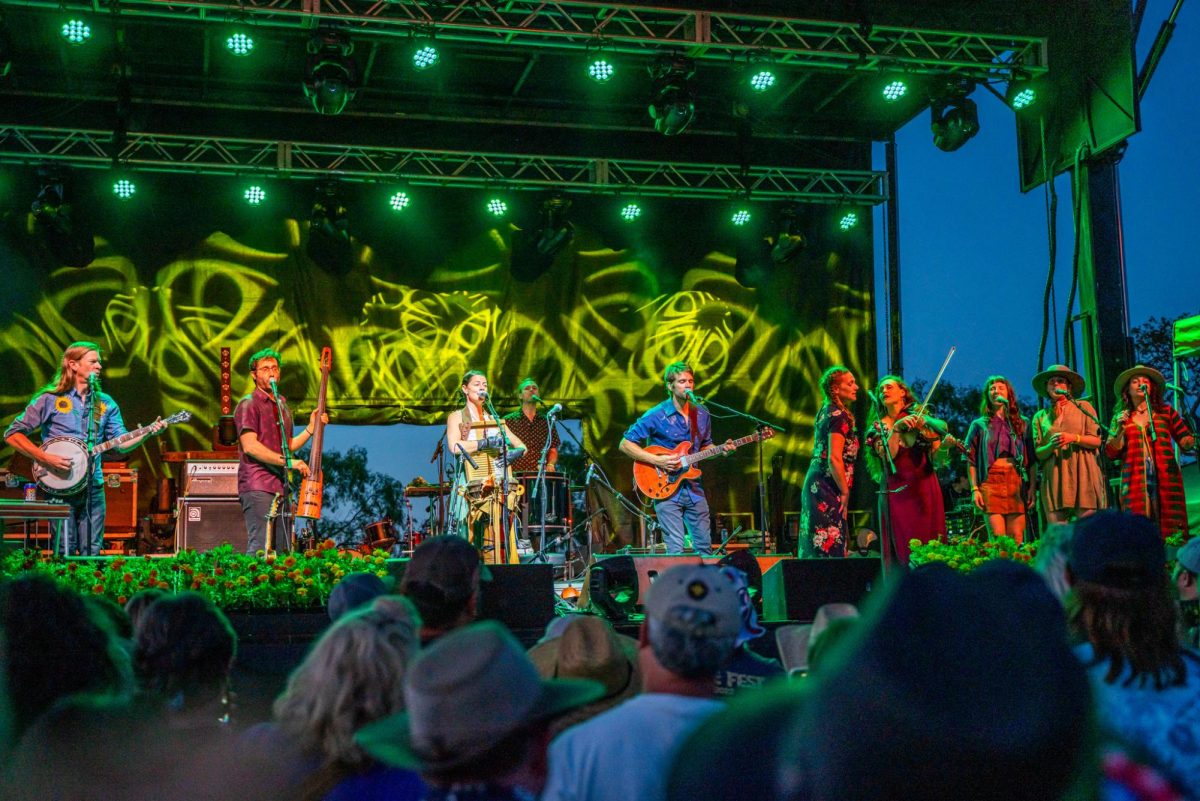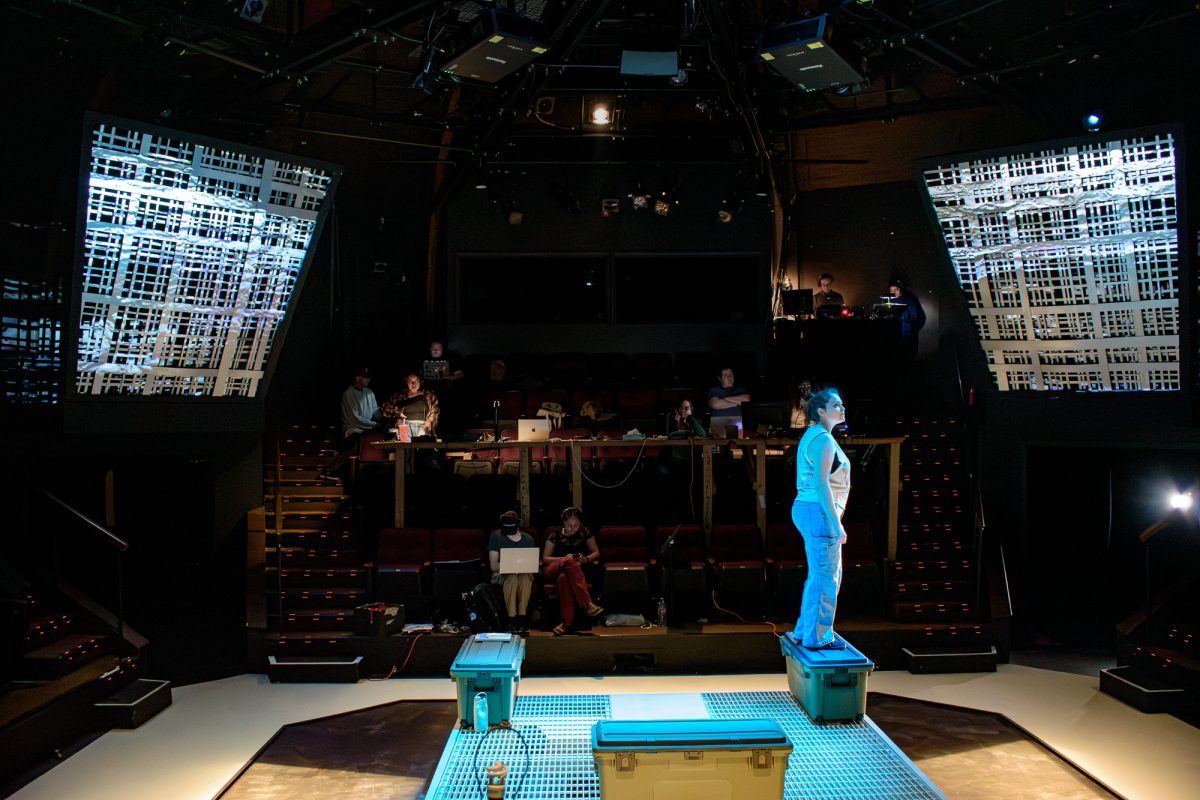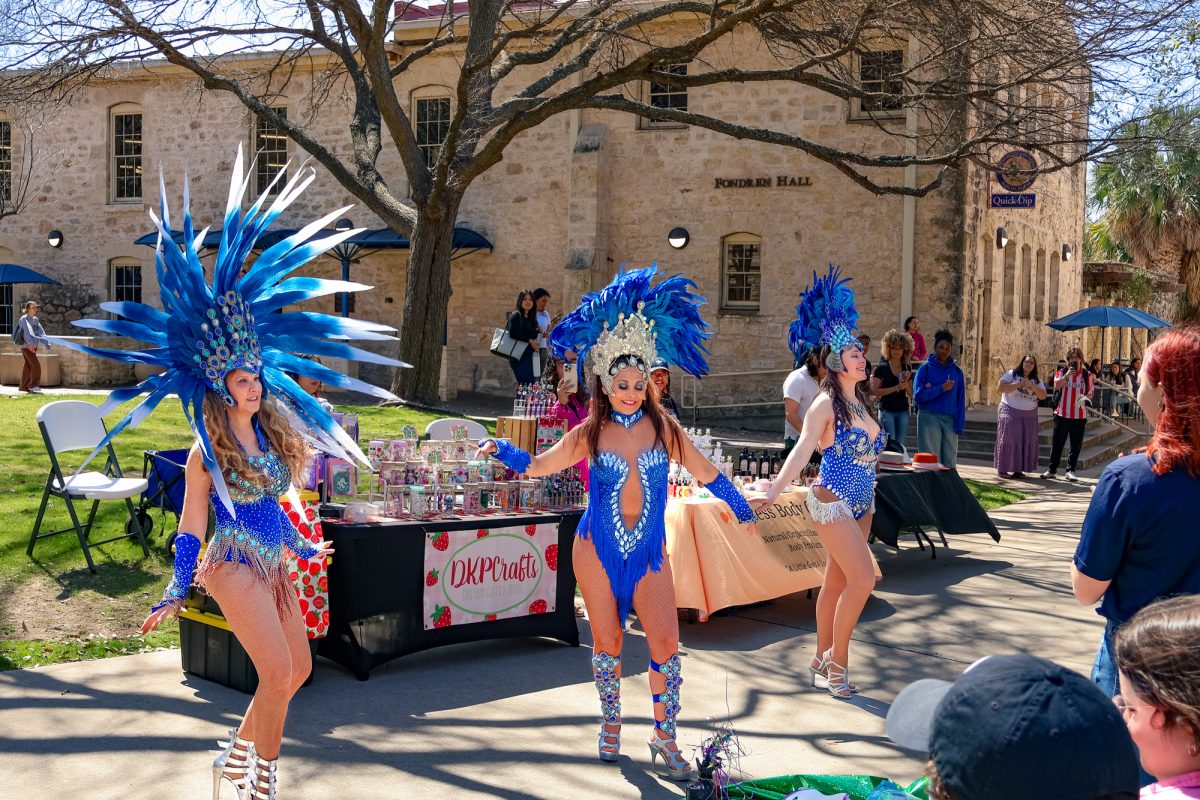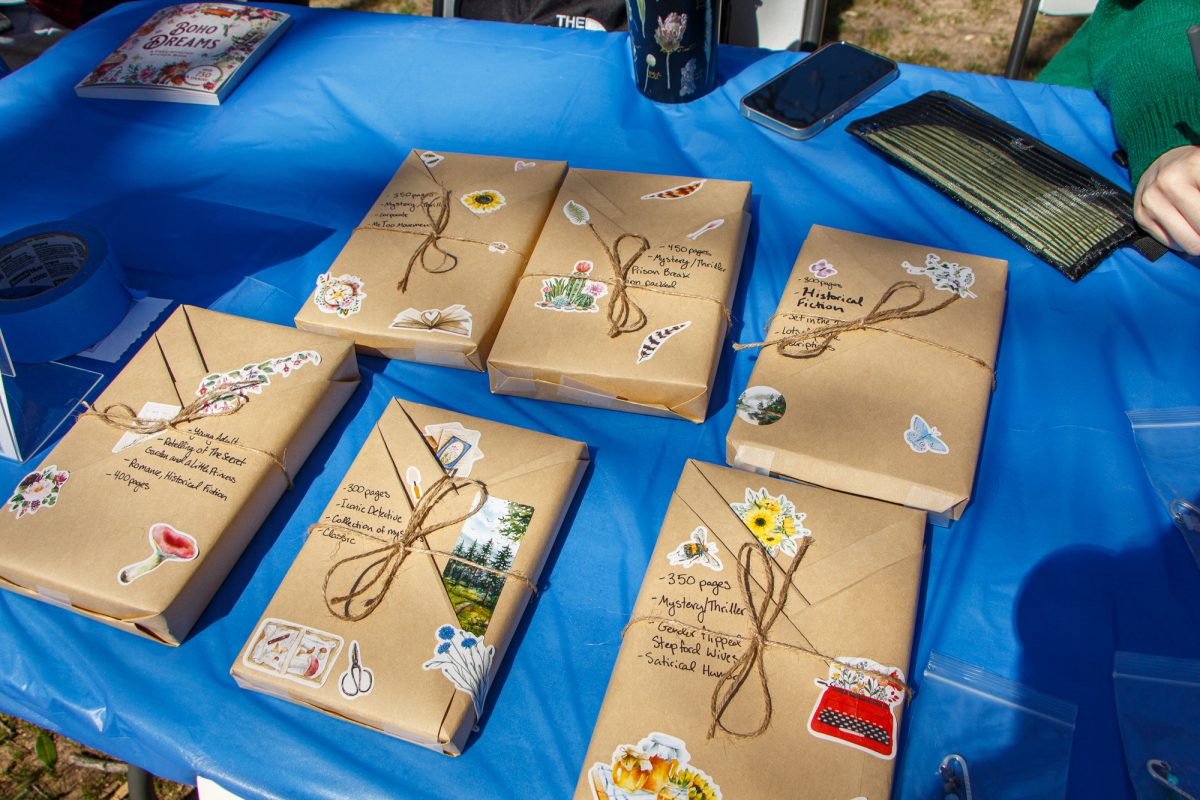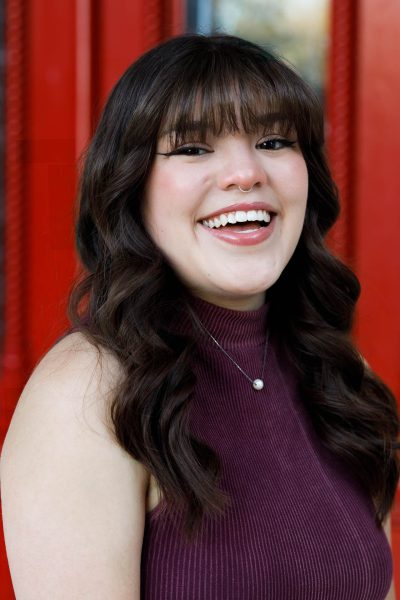Students of the Trans Wellness Organization (TWO) and allies from across campus came together to partake in the Transgender Voices Read-In to highlight transgender writers’ contributions and works of literature that amplify trans voices. The event was organized in celebration of International Transgender Day of Visibility, a day celebrating transgender people and their contributions, as well as raising awareness for the struggles their community faces.
The event was held in the Munday Library lobby from 5:30-7:00 p.m. Although there have been many other read-ins hosted in honor of Hispanic Heritage Month and Black History Month, to name but a few, TWO co-president junior Kris Feck says this was the very first read-in showcasing transgender literature and voices.
“Other organizations also have read-ins and I’ve gone to all of them as well, and they’re such great experiences,” Feck said. “As someone who loves to read a lot, I really love hearing about different books, hearing about how these books by these authors affect people and overall, it’s really important to highlight these books written by marginalized people.”
There were a total of 10 readers, all reading selections spanning from novel excerpts, song lyrics, poems and quotes. Feck chose to read a book excerpt from “Stone Butch Blues,” a 1993 novel written by transgender and lesbian activist Leslie Feinberg. The book explores Feinberg’s complex experience with gender identity, gender norms and how these intersect within the queer community. Feck expressed that Feinberg’s novel was representative of their own personal experiences regarding their gender identity and sexuality.
“I decided on their book specifically because it is one of the books that really helped me solidify my understanding of my own gender and how, when I was questioning my gender, I didn’t know I could be both trans-masculine and a lesbian,” Feck said. “Reading older books kind of helped me understand that those aren’t at odds and are very often, throughout history, tied together. ‘Stone Butch Blues’ was just a very well-written book about the struggles of being transgender, but also what it means to be a butch lesbian, so that just meant a lot to me.”
While attendees read from a variety of sources either from trans authors or detailing trans experiences, junior Nico Drutz shared his very own writing aloud for the first time at the event. Drutz, a trans man and aspiring writer, is the president of the Creative Writer’s Club. His writing centers around capturing people’s weird and unique perspectives and he enjoys writing about people who step outside the typical, predictable protagonist. He expresses gratitude for being able to share his writing with an audience that supports his work and the work of other trans writers.
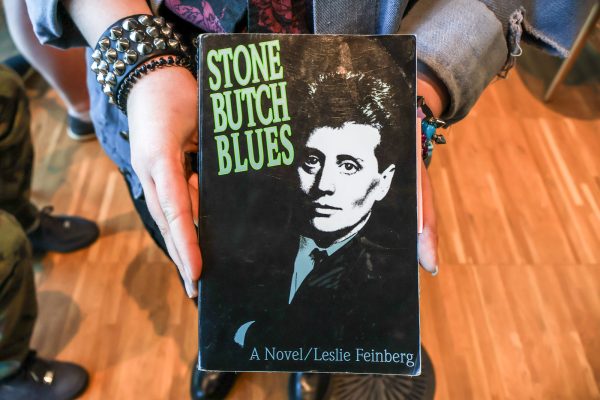
“I figured I want to be one of the people that takes that step to make my voice heard because I’m an up-and-coming writer myself,” Drutz said. “I’ve recently transitioned to being a Creative Writing major, and I figure there’s no time like now to grow that ability to get to know people who will be comfortable with what I’m writing. As a transgender person, it always means a lot to be in a place where transgender writers will be welcomed.”
The event highlighted the broad perspectives of transgender voices, but it also served as retaliation against the pressing issue of continuous book bans and anti-trans bills in the U.S. Book bans across the country silence marginalized voices, particularly those from the queer and transgender community, such as Maia Kobabe’s memoir “Gender Queer,” which was also read at the event, being one of the most frequently banned books in the country. TWO faculty advisor and Associate Professor of Literature Alex Barron, who participated in the reading by reciting an excerpt from “Stone Butch Blues” as well, explains how paying attention to trans voices and experiences is crucial, especially in such a challenging time for the transgender community.
“Right now, we’re in a moment where trans people are so under attack,” Barron said. “And I think having any sort of event where you bring trans and queer people together and celebrate art that people have made, celebrate and amplify trans voices, is important at any time. But at this moment, when we’re seeing so many attacks, I think it’s especially important.”
Feck, Drutz and Barron all reiterated the main purpose of the event: to create a safe space and foster a community of acceptance and support for all transgender and queer individuals – and protect their voices.
“Holding the space on campus to celebrate transgender art and the community as a whole on a day where it’s all about celebrating and remembering our history is very important to be loud about,” Feck said.


